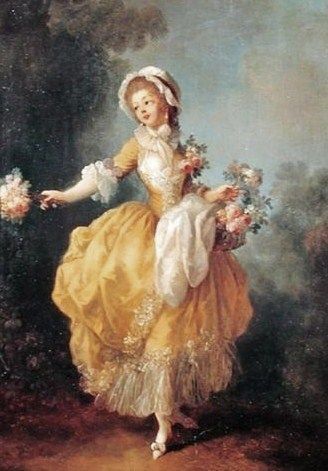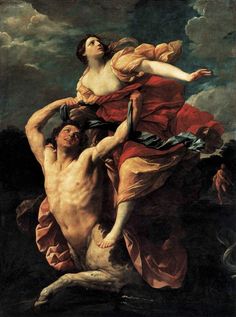Maurice Blanchot although being a heavy weight of Literature is essentially ignored by the mainstream public as a result of dense obscurity of his work. Blanchot’s literature stays largely decorative like a chunk of Baroque opera with strands of philosophy operating by it. I want to talk about the ideas that I got here by whereas studying his magnum opus: The Space of Literature.
Maurice Blanchot begins his work be characterizing Writing as Solitude. What’s solitude in on a regular basis life? It means an internal calm of tranquility. It’s questionable to ask whether or not a author writes out of solitude or pleasure. He quotes Rilke: ‘I have never produced a single work: my solitude has engulfed me’. Why cannot the author be agitated when he’s writing his work? I’m certain that Nietzsche wrote: Thus spoke Zarathustra whereas present process bouts of madness. A Freudian ID will get provoked into the need of writing. Even mystics after they meditate are by no means in solitude. There are in a state of deep contemplation. One can even write out of the eagerness to jot down however one can by no means be in solitude when one is in a state of writing. When one is within the course of of writing, one gravitates to the middle of that means. So I want to reformulate Blanchot’s solitude as pleasure, agitation, ardour and contemplation. The thoughts can by no means be in solitude.
Once more Blanchot goes on to say {that a} author by no means is aware of whether or not his work is completed or not. In a single sense it’s true and in one other sense it’s not. Any work of Literature is just partial doesn’t show artwork to sense of completion. However then once more in a literary work, there is a starting and an ending. Let’s take an instance of Ulysses by James Joyce. The novel operating into eight hundred pages and depicts twelve hours of individual’s life primarily Bloom, Stephen and Molly. There’s a starting and an ending to the work. Blanchot is partially proper when he says that no work of artwork is full. A piece of artwork has acquired solely levels of perfection. Equally Blanchot additionally mentions {that a} reader enters into solitude whereas encountering a piece. Readers of pulp fiction are causal readers. The work of a critical reader is marked by the phenomenology of studying. The thoughts of a critical reader works as an inter-textual machine. Studying interferes with what has been learn previously. The ontology of existentialism, the autobiographical possession of the reader comes into play whereas studying. There may be good studying however there are solely imperfect interpretations.
It is by an absence that phrase being of author comes into existence. I want to refute this assertion by saying that writing is affirmation of presence, a saturation of it. Being is pronounced into the changing into of that means. In writing there’s indulgence of the that means of being. Writing is extra of being. Presence of being is an affirmation for a author.
Once more he goes on to say {that a} author by no means reads his or her work. That may be true to some extent. Would a author actually having fun with modifying his or work? A author doesn’t perform as a reader. The author merely proof reads his or her work.
For a author, a phrase is one thing that can’t be mastered. How may that be the case? A author is a lingual-maniac. He finds new usages for pre-existing ones. She or he additionally creates new phrases: for instance neologisms. A author invents tropes of language. How can this be doable with out mastery? Writing will not be sterile however energetic and dynamic.
To write down is to interrupt the bond between the phrase and the self. I want to say that writing is a catharsis. The bond between writing, the phrase, and the self is one of unison. Writing is akin to having sexual activity. The self and the phrase are bonded to a author.
The author belongs to a language that nobody speaks. Sure, writing is creative and seeks new paradigms of a discovery of that means. Tropes belong to the language of nascence and newness. Writing is a course of of self discovery.
After we admire the tone of the work, we aren’t referring to type or virtues of the language however to a silence. Blanchot will not be certain about what this silence is. We’re in fascination and catharsis after we unveil the imagery used by a author. There may be mental and emotional gratification. We don’t encounter the work in silence.
What’s the journal? It isn’t romantic, not primarily confessional. It’s the author when she or he will not be writing. I really feel that Blanchot is being obscure there. Once more he goes on to say {that a} journal is written out of worry and anguish. The writing of the journal is not historic. Romanticism has acquired new shades of that means in weblog writing. Style, artwork and tradition are all romanticized by bloggers present process a brand new expertise. As Wordsworth has mentioned ‘poetry is the spontaneous overflow of feeling’. To be romantic is to be in state of thoughts that is in ardour. Writing a journal can be confessional. To be confessional is to be passionate and expressive. My writing on adultery is confessional. It’s unsuitable to say {that a} journal will not be historic. For instance let’s take Ann Frank. Ann Frank is a passionate outburst of the oppressions that she encountered throughout a Nazi regime. Thus a journal may be confessional, romantic and historic.
To write down is to give up to time’s absence. I want to disagree with the assertion. Time in writing flows as streams of consciousness. Time is reflective and contemplative when the author engages in writing. Writing can’t be marked by the absence of time.
Fascination is solitude’s gaze. To write down is to let fascination rule the language. The gaze of the author might be a sexual, one; it is also subjective, philosophical, materialistic and transcendental. The gaze is intentional and is borne out the repressed within the ID.
Once more he quotes Mallarme: ‘Once I write into verse, I encounter nothingness, an absence of God and my very own demise. It’s questionable to ask Blanchot, how negation can enter the realm of writing. Negation is nihilism, a unfavourable affirmation when one thing constructive doesn’t occur. Writing is self proclaiming and affirmative. Sure after Nietzsche’s proclamation that ‘God is useless’, writing has change into anthropocentric. How can a author enter the realm of demise? Is the author killing his self when he enters into the practice of writing? In response to Camus, whereas writing we enter right into a philosophical suicide. Sure there’s demise of the precise self and beginning of the inventive self.
Once more Blanchot goes to differentiate between the crude phrase and the decorative phrase. After we say that the flower is within the backyard we’re utilizing crude language or the language of communication. If I take advantage of: I’m flowering her lips, I’m ornamentally adorning the language. Writing is decorative, ornamental and hyperbolic. Once more he goes on to say: poetry is the universe of phrases the place relations and configurations are attained by sound, determine and rhythmic language. Poetry is akin to the musicality of phrases, and it flows with the Dionysian rhythm and makes presence with the Orpheus of figures.
Kafka started his writing out of true despair. We should always know that Kafka had a stormy relationship along with his father. He was additionally an exiled Jew. Kafka despised authority figures. Writing for Kafka grew out of protest towards authoritarianism. That is very true after we evaluation his work-the Metamorphosis. The work is allegorical and reveals the negation of individuality by authority figures. The particular person in Metamorphosis is lowered into fragments. Writing for Kafka was religious and psychological salvation. Kafka made the affirmation that nothing else apart from literature satisfies me. The extra Kafka writes: the much less certain is he of himself.
Artwork is primarily the consciousness of unhappiness not its comfort. How can artwork be the consciousness of unhappiness alone? One can expertise artwork by the consciousness of pleasure and affirmation. Let’s diagnose Picasso’s portray of the Guernica. Was Picasso stuffed with angst of the bombing of Basque? Or was he affirming creativity whereas portray the Guernica. Once I meditate on Dali’s portray: The persistence of Reminiscence, I’m stuffed with cathartic interpretation. I recognize its that means to painting time as streams of consciousness. I additionally marvel on the melting clock positioned on the frozen embryo and interpret it as Dali’s personal oedipal trauma.



